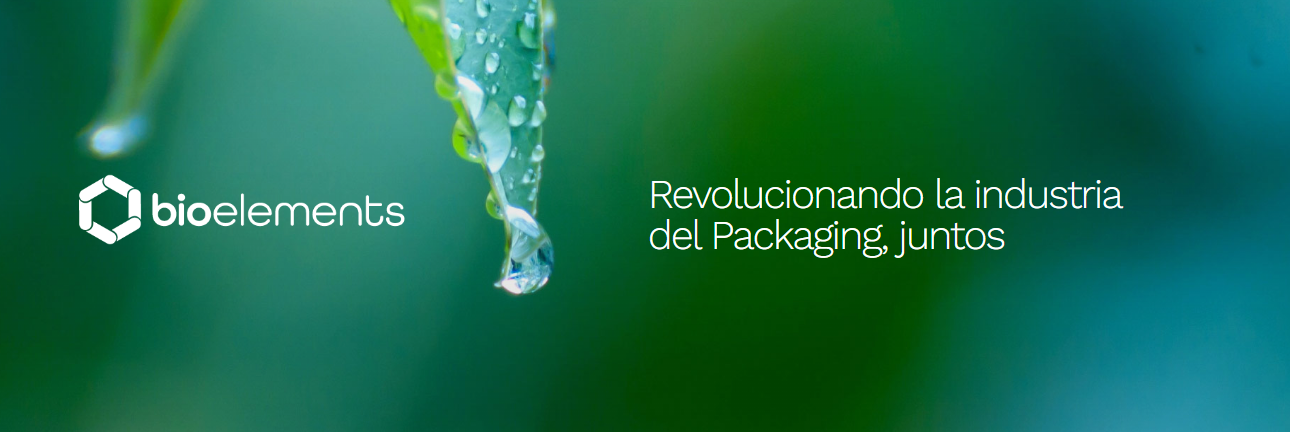

BIOELEMENTS GROUP SPA

Santiago Metropolitan Region, Chile
December 2020
Other retail sale
Wholesale/Retail
Brazil,
Chile,
Colombia,
Mexico,
Peru,
United States
Somos a solução em bioembalagens história BioElements foi criada em 2014 como uma alternativa ecológica ao plástico convencional. Desenvolvemos a Resina BioE-8, composta de material biobaseado, renovável e biodegradável. Todas as nossas sacolas e sacos, papel filme e produtos rígidos biobaseados, são totalmente biodegradáveis em qualquer tipo de meio ambiente, incluindo aterros sanitários, usinas de compostagem e em meios aquosos. Neste processo, nossos produtos melhoram a germinação das sementes. Estão certificados pela DICTUC. Além disso, possuímos certificados do IDIEM e da PUCV. Recebemos um prêmio como o melhor empreendimento de 2017 ao ter solucionado um problema de alcance global, outorgado pela Babson College (USA). Fazemos parte da Asociación Gremial Pro Biopolímeros, integrada por 10 empresas que fabricam produtos biodegradáveis, todas baseadas na tecnologia BioElements. Estamos presentes no México, Brasil, Chile, Peru, Colômbia e nos EUA.
Overall B Impact Score
Governance 15.6
Governance evaluates a company's overall mission, engagement around its social/environmental impact, ethics, and transparency. This section also evaluates the ability of a company to protect their mission and formally consider stakeholders in decision making through their corporate structure (e.g. benefit corporation) or corporate governing documents.
What is this? A company with an Impact Business Model is intentionally designed to create a specific positive outcome for one of its stakeholders - such as workers, community, environment, or customers.
Workers 18.0
Workers evaluates a company’s contributions to its employees’ financial security, health & safety, wellness, career development, and engagement & satisfaction. In addition, this section recognizes business models designed to benefit workers, such as companies that are at least 40% owned by non-executive employees and those that have workforce development programs to support individuals with barriers to employment.
Community 23.5
Community evaluates a company’s engagement with and impact on the communities in which it operates, hires from, and sources from. Topics include diversity, equity & inclusion, economic impact, civic engagement, charitable giving, and supply chain management. In addition, this section recognizes business models that are designed to address specific community-oriented problems, such as poverty alleviation through fair trade sourcing or distribution via microenterprises, producer cooperative models, locally focused economic development, and formal charitable giving commitments.
Environment 41.6
Environment evaluates a company’s overall environmental management practices as well as its impact on the air, climate, water, land, and biodiversity. This includes the direct impact of a company’s operations and, when applicable its supply chain and distribution channels. This section also recognizes companies with environmentally innovative production processes and those that sell products or services that have a positive environmental impact. Some examples might include products and services that create renewable energy, reduce consumption or waste, conserve land or wildlife, provide less toxic alternatives to the market, or educate people about environmental problems.
What is this? A company with an Impact Business Model is intentionally designed to create a specific positive outcome for one of its stakeholders - such as workers, community, environment, or customers.
Customers 1.5
Customers evaluates a company’s stewardship of its customers through the quality of its products and services, ethical marketing, data privacy and security, and feedback channels. In addition, this section recognizes products or services that are designed to address a particular social problem for or through its customers, such as health or educational products, arts & media products, serving underserved customers/clients, and services that improve the social impact of other businesses or organizations.